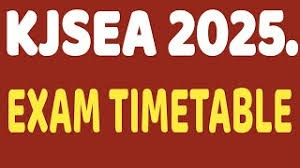Under the CBC framework, KNEC is getting ready for the first-ever assessment of the curriculum for primary education in Kenya.
In order to implement the Competency-Based Curriculum (CBC), the Kenya National Examination Council (KNEC) is getting ready to launch the first Kenya Junior School Education Assessment (KJSEA), a significant step.
The team is currently occupied with validating the data, according to Dr. David Njengere, the CEO of KNEC, who verified that candidate registration is now closed.
He hopes to publish a complete list of registered candidates by the end of April.
The second annual symposium on competency-based evaluation, sponsored by KNEC, was recently held in Nairobi. At this meeting, key stakeholders discussed the best way to interpret assessment findings, enhance test administration, and advance fair access to education throughout the nation.
Dr. Njengere stressed the significance of tracking each student’s development from third grade onward at the symposium. By using this method, KNEC will be able to identify equity concerns sooner and recommend targeted interventions to help the students who are most in need.
In addition, Dr. Njengere reaffirmed KNEC’s continued dedication to the CBC framework. He highlighted that the council’s emphasis on competency-based teaching and assessment is reflected in the next Kenya Junior Secondary Education Assessment, which is scheduled for later this year.
In recognition of the Ministry of Education’s efforts to promote educational reforms in response to current needs, the symposium was chaired by Professor Julius Nyabundi, the KNEC Chairman.
Additionally, he emphasized the ongoing debate about whether math should be required, proposing that it might be more advantageous for pupils to be able to select subjects that fit their interests and skills.
Subject Selection in Senior Schools: A Guide
The Kenya Institute of Curriculum Development responded to worries over obligatory subject options in secondary schools. They made it clear that pupils will not be compelled to study topics that they have not covered in junior school.
For example, pupils seeking jobs in the aviation industry may select courses like physics and geography, which are consistent with junior school subjects like social studies, thereby promoting a seamless learning path.
A Summary of KNEC’s Upcoming Initiatives
- Data verification and candidate registration for KJSEA are complete.
- By the end of April, the list of registered candidates must be made public.
- Begin concentrating on monitoring the development of each student from Grade Three onward.
- Supporting flexible subject options that are in line with student interests.
- Maintaining reforms to bring examinations into line with CBC principles.
The introduction of the Kenya Junior School Education Assessment is a key milestone in the path of educational reform in Kenya, with the goal of fostering skill development and fair learning results across the country.

